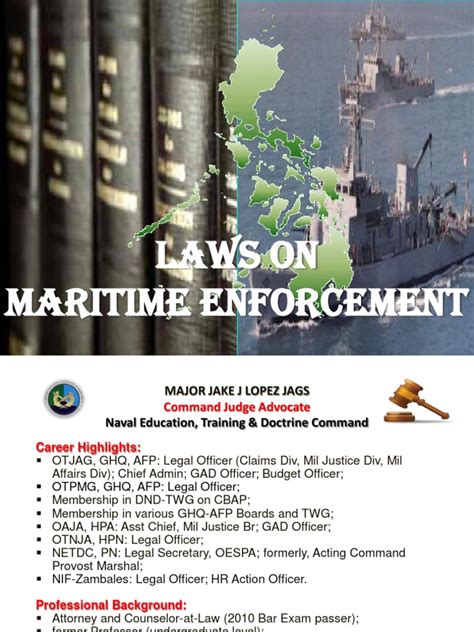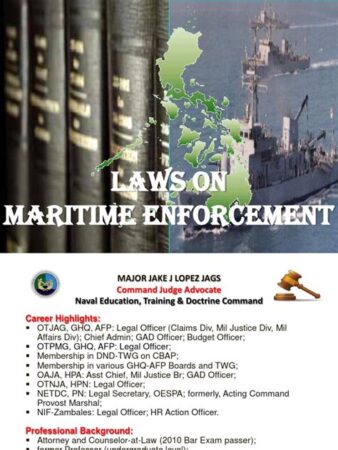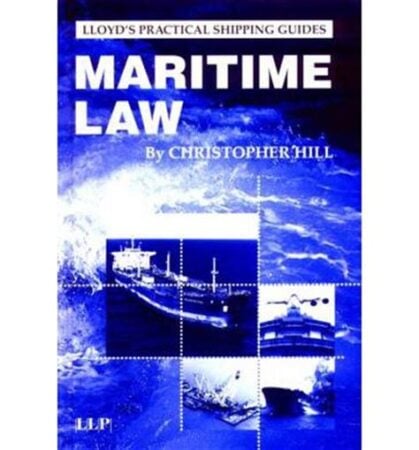
Concerns About Maritime Law Enforcement: A Comprehensive Guide

Ahoy, Readers!
Welcome aboard, readers! Maritime law enforcement, the guardian of our vast oceans, is a crucial yet often overlooked aspect of maritime operations. In this comprehensive guide, we’ll dive into the depths of concerns surrounding maritime law enforcement, exploring its challenges, complexities, and potential solutions.
Section 1: Policing the Vast Frontier
The Challenges of Offshore Enforcement
The vast expanse of the world’s oceans presents immense challenges for maritime law enforcement agencies. From patrolling remote waters to combating transnational crimes, such as piracy, smuggling, and illegal fishing, the task is daunting. Limited resources, technological constraints, and the sheer size of the maritime domain make it difficult to effectively monitor and control activities at sea.
The Rise of Maritime Terrorism
In recent years, maritime law enforcement has faced a growing threat from maritime terrorism. The use of non-state actors to carry out attacks against shipping, oil rigs, and coastal communities has raised concerns about the vulnerability of the maritime domain. Enforcing maritime security and detecting suspicious vessels amidst the vast ocean traffic requires robust intelligence gathering and international cooperation.
Section 2: Environmental Concerns
Protecting Marine Ecosystems
Maritime law enforcement plays a vital role in safeguarding marine ecosystems from threats such as oil spills, illegal dumping, and overfishing. Enforcing regulations and monitoring pollution discharges are essential for preserving the health of our oceans and the livelihoods that depend on them. However, inadequate resources, lack of coordination, and a lack of compliance often hinder effective enforcement.
Challenges of Marine Biodiversity Conservation
Protecting marine biodiversity is a complex task for maritime law enforcement. The vastness of the oceans, limited scientific knowledge, and the growing demand for marine resources make it challenging to monitor and regulate activities that may harm marine species and their habitats.
Section 3: Human Rights and Labor Concerns
Ensuring Fair Treatment of Seafarers
The treatment of seafarers, who form the backbone of the maritime industry, is a concern for maritime law enforcement. Ensuring fair wages, safe working conditions, and protection from exploitation are crucial for the well-being of maritime workers. Enforcing labor regulations and combating human trafficking on board vessels is a challenging task.
Protection of Seafarers’ Rights
Seafarers often face challenges in accessing justice and reporting abuses due to the remote nature of their work and the lack of clear jurisdictions at sea. Maritime law enforcement agencies have a responsibility to protect seafarers’ rights, provide legal assistance, and ensure their access to justice.
Table: Key Concerns and Challenges in Maritime Law Enforcement
| Concern | Challenge |
|---|---|
| Offshore Enforcement | Vastness of oceans, limited resources, transnational crimes |
| Maritime Terrorism | Detection of suspicious vessels, non-state actors |
| Environmental Protection | Oil spills, illegal dumping, overfishing |
| Marine Biodiversity Conservation | Vastness of oceans, limited scientific knowledge |
| Seafarers’ Rights | Fair wages, safe working conditions, exploitation |
| Protection of Seafarers’ Rights | Access to justice, legal assistance |
Conclusion
Ahoy, readers! As we set sail towards the end of our maritime law enforcement journey, we hope this guide has shed light on the diverse concerns that impact this crucial sector. The vastness of the oceans, the complexity of transnational crimes, and the vulnerability of marine ecosystems present formidable challenges for maritime law enforcement agencies.
Be sure to check out our other articles for insights into the latest developments and emerging issues in maritime operations, including deep-sea exploration, sustainable fishing practices, and the future of maritime technology. Until next time, readers!
FAQ about Maritime Law Enforcement
What is maritime law enforcement?
Maritime law enforcement is the enforcement of laws at sea, including international waters. It includes activities such as patrolling, boarding, and inspecting vessels; conducting investigations; and making arrests.
What are the main concerns about maritime law enforcement?
The main concerns about maritime law enforcement include:
- Human rights abuses, such as arbitrary detention, torture, and extrajudicial killings.
- Excessive use of force, such as the use of deadly force against unarmed individuals.
- Lack of accountability, such as the failure to investigate and prosecute maritime law enforcement officers for human rights violations.
- Environmental damage, such as the pollution of the ocean from oil spills and other maritime activities.
What can be done to address these concerns?
There are a number of steps that can be taken to address the concerns about maritime law enforcement, including:
- Strengthening human rights protections, such as requiring maritime law enforcement officers to follow international human rights law and providing mechanisms for victims of human rights abuses to seek justice.
- Reducing the use of force, such as developing guidelines for the use of force and providing training to maritime law enforcement officers on de-escalation techniques.
- Increasing accountability, such as requiring maritime law enforcement agencies to report on their activities and investigate and prosecute any allegations of human rights violations.
- Protecting the environment, such as requiring maritime law enforcement agencies to enforce environmental laws and regulations.
How can I help?
There are a number of ways that you can help address the concerns about maritime law enforcement, including:
- Educating yourself, such as reading articles and reports about maritime law enforcement and human rights.
- Advocating for change, such as writing to your representatives and supporting organizations that are working to reform maritime law enforcement.
- Supporting victims, such as providing financial assistance or legal aid to victims of human rights abuses by maritime law enforcement officers.





